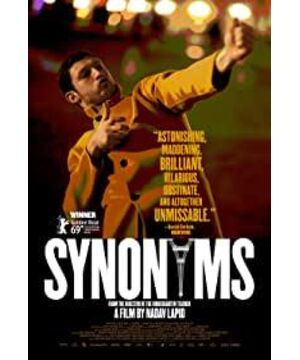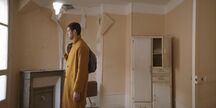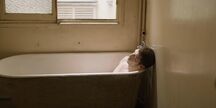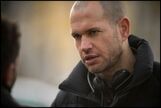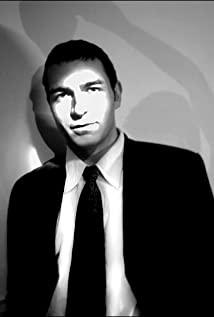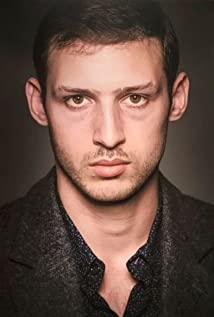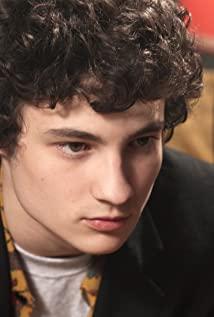The Berlin Film Festival came to a close last weekend with the Golden Bear going to Israeli director Nadav Lapid's "Synonyms." Although the film received polarized reviews after its premiere, it still ranked first in the competition unit with the highest score (3 points) in the daily magazine. After watching his "Police" many years ago, I felt that he is the new hope of Asian directors. Now it may be slightly changed. It should be the new hope of European film directors, which is naturally closely related to his nationality. As we all know, although Israel’s geographical location belongs to Asia, its culture and living habits are more influenced by Europe, which naturally puts this Jewish country in a collision between Asian traditions and European advanced cultures.
Nadav Lapid's work flows between reflections and critiques of the two cultures, from exposing Israeli society's neglect of art ("The Teacher") to critiquing the relationship between male superiority in traditional Israeli marriages ("The Teacher"). "Diary of a Wedding Photographer"), or young men and women who portray historical nihilism and extreme idealism ("Emile's Girlfriend", "Police"), and then this year's new work that mixes multiple critical themes, His work is often closely related to socio-political-religious topics. This is in line with the taste of the Berlin Film Festival, which has always been dominated by politics. It cannot be said that it has nothing to do with the successful capture of the Golden Bear this year.
"Synonyms" is Lapid's first French film. It obviously contains a lot of private goods. Many interesting things that the male protagonist encounters in the process of integrating French society must be the director's personal experience. It seems to me more like an extended version of his earlier short film Ha-Chavera Shell Emile. There is a character named "Emile" in both films. Emile is the second male lead in "Synonyms", providing a place for the penniless hero to live in France, while "Emile's Girlfriend" A mysterious figure who has never been seen. Both films kick off with a naked body scene of the male protagonist, and what is more similar is that both male protagonists are trying to learn French! The male protagonist of "Synonyms" bought a dictionary to dig into the French life; while in "Emile's Girlfriend", he stumbled and practiced French in order to communicate with Emile's French girlfriend and take her on a half-day tour of Tel Aviv.
Both films have a core topic: that is the relationship between Israel and France, which should also be the voice of the director who has distilled his personal experience. In "Emile's Girlfriend", the male protagonist practices French to please Emile's French girlfriend, from disdain to finally reconciling and showing love, suggesting that Israel and France are going through a process of constant running-in in their antagonistic relationship. In "Synonyms", this process is extended in detail into a story in which the male protagonist is full of contradictions and trudges hard, keeps making choices but finally returns with a loss.
The director's method of concealing the identity of the protagonist continues the previous practice. At the beginning, we only know that he is an Israeli (the scene with naked lower body), and it is not until the middle of the flashback that we know that he was a soldier, and then through his work partners and extremist friends The description of his relationship with his father gradually reveals his past. He seems to have fled to a "free, egalitarian, fraternity" France in order to escape Israel's traditional life and values. In order to integrate into French life, he bought a dictionary to learn French, but he used blunt words, constantly piling up synonyms, and always refused to speak his native language, Hebrew, and even did not want to meet his father, trying to cut off in this extreme way. All relations with Israel, as soon as possible into the French culture. In these episodes, the director's secret criticism points to Israel's nationalism and blind patriotism. This kind of fanatical and irrational thinking repeatedly emphasizes the history of the brutal slaughter of Jews, and this is the reason why the hero wants to escape .
On the other hand, his close friend Emile and his girlfriend, as well as photographers, French class teachers and others, on the surface, are constantly extending a helping hand to him, providing generous material living conditions, but in fact they are using him Take advantage of different cultural backgrounds. Emile is the most obvious example. Although he has a same-sex admiration for the male protagonist and is willing to give his girlfriend his own hand, he constantly asks the male protagonist to experience stories to create his own works, and steals from the genius poet in "The Teacher". Inspirational female teachers do the same. Emile's girlfriend is not with him out of true love, but only cares about his perfect body and enjoyment of lust, and the photographer's actions during the shooting (ordering the male protagonist to express moaning in Hebrew) is even more precise. The attraction of the exotic elements in him is that he has no intention of paying attention to the substance of language. The French teacher in the naturalization course instilled the French freedom of speech and other Western values into the students in a cramming way, which is full of irony; and he "sings" the Marseillaise by shouting, which also just proves that he is in harmony with reality. The embarrassing situation of being out of place in the French culture. He gradually realized that the values in Western culture are also limited and cannot fully accommodate other freedoms of expression. In the backstage scene of the concert where he finally decided to break up with his girlfriend, this unique and sharp position was vividly expressed.
In Rapide's films, the characters and concepts of "binary opposition" are always presented back-to-back: anti-terrorism police and extreme youth, children and adults, secular and poetic, material and spiritual, traditional and modern. This distinct authorship is even more pronounced in this new work: the traditional Jewish nationalism of Israel and the universal values of France. The director uses his own experiences of two different cultures and the values he has instilled to reflect and criticize one by one, but maintains a calm and objective attitude from beginning to end. This way of presenting the theme impartially makes the audience more Open thinking space, rather than following the so-called established concept into the director's horns, this point is also worth savoring carefully.
However, there are still shortcomings in the film. The absurdity created by the male protagonist learning French in the first half is out of touch with the theme of the film; the romance between a man and an Israeli partner is not handled tightly enough, and I feel that the director has conceived a lot of wonderful jokes , which you can't put down but pile up indiscriminately, a bit like last year's Palme d'Or work "The Rubik's Cube". This kind of "defect" full of author's consciousness has already appeared in "The Police", and the two paragraphs before and after are deliberately caused a strong sense of rupture, which makes it difficult to adapt. Fortunately, compared to the unbalanced rhythm of the first half of the play, the second half has gradually improved control skills. Whether it is the male protagonist's confusion and doubts about his identity, or his thoughts on freedom of speech in France, all of them are impressive. Amazing design and details, such as the Marseillaise just mentioned in the French class, and the passage of the final concert, and the unforgettable ending: the hero tries his best to break open the door of Emile's house, but finds that there is no effect. This strongly symbolic image not only echoes the beginning of the film, but also contrasts sharply with the situation in which he was rescued after being looted, and more clearly points out that France does not actually maintain an open and inclusive attitude towards Israelis and different values. , which seems to be an increasingly cruel reality in Europe today.
First released on the movie public account, the movie tactile CineTouch
View more about Synonyms reviews


